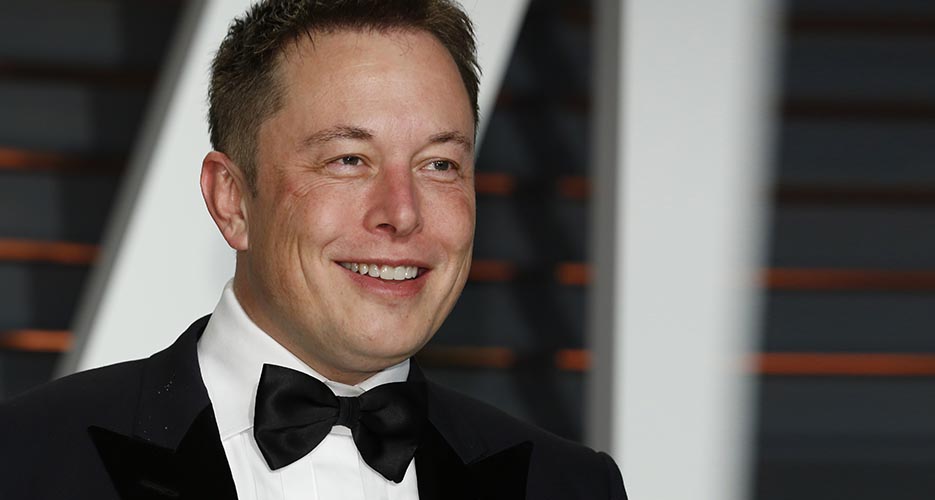Musk’s Childhood and Passion for Technology
Elon Musk was born in Pretoria, South Africa, on June 28, 1971. From an early age, he displayed an intense curiosity about technology and space. By the age of 10, he had already developed an interest in computing and taught himself to code. At just 12 years old, Musk sold his first software, a video game called Blastar. This early success was a glimpse of the revolutionary thinker he would become.
College Years and First Steps in Entrepreneurship
Determined to make a name for himself, Musk left South Africa and moved to the U.S. He studied at Queen’s University in Canada before transferring to the University of Pennsylvania, where he earned degrees in physics and economics. After a brief stint at Stanford University, Musk dropped out to chase his entrepreneurial dreams during the internet boom of the 1990s.
The Birth of Zip2 and X.com
The Zip2 Revolution
In 1996, Musk co-founded Zip2, a company that provided business directories and maps for newspapers. Though it wasn’t glamorous, Zip2 played a crucial role in early digital transformation. The company was later sold to Compaq for $307 million, giving Musk his first real financial breakthrough.
X.com and the Evolution into PayPal
Never one to rest on his laurels, Musk founded X.com, an online payment company, in 1999. This venture later became PayPal, which changed online transactions forever. In 2002, eBay acquired PayPal for $1.5 billion, further solidifying Musk as a tech giant.
Tesla: Revolutionizing the Auto Industry
Taking Over Tesla
Although Tesla was not Musk’s original creation, he joined the company in its early years, investing heavily and becoming CEO. He saw the potential of electric vehicles (EVs) and aimed to make them mainstream.
Advancing Electric Vehicle Technology
Tesla’s innovative battery technology, autonomous driving capabilities, and futuristic designs have made it the world leader in EVs. The company has disrupted the auto industry, proving that electric cars can be fast, efficient, and desirable.
Overcoming Financial and Production Challenges
Tesla faced significant hurdles, from production delays to financial crises. Yet, Musk’s determination kept the company afloat. Today, Tesla is a trillion-dollar giant, paving the way for a sustainable automotive future.
SpaceX: Pioneering Space Exploration
Why Musk Founded SpaceX
Frustrated by the high cost of space travel, Musk founded SpaceX in 2002. His goal? To make space travel affordable and, eventually, colonize Mars.
Achievements: Falcon, Starship, and Mars Mission
SpaceX has achieved remarkable milestones, including reusable rockets (Falcon 9) and the ambitious Starship project, which aims to take humans to Mars.
Challenges and Future Goals
Despite its successes, SpaceX faces challenges such as regulatory hurdles, technological risks, and massive financial requirements. Yet, Musk remains steadfast in his dream of making humanity a multi-planetary species.
Neuralink and The Future of Brain-Machine Interfaces
The Concept Behind Neuralink
Musk’s Neuralink aims to merge the human brain with AI through implantable devices. This could help with neurological disorders and even enhance human cognition.
Potential Applications and Ethical Concerns
While promising, Neuralink also raises ethical concerns. How will brain data be protected? Could this technology lead to a dystopian future? Musk believes in its potential for good but acknowledges the need for regulations.
The Boring Company: Solving Traffic Issues
The Idea Behind The Boring Company
Traffic congestion is a nightmare. Musk’s solution? Underground tunnels that transport vehicles at high speeds, reducing surface-level congestion.
Hyperloop and Tunnel Transportation Innovations
Musk’s Hyperloop concept envisions high-speed, vacuum-sealed pods that could transport passengers at near-supersonic speeds. If realized, this could revolutionize public transit.
Twitter (X) and Social Media Influence
Musk’s Takeover of Twitter
Musk purchased Twitter in 2022 and rebranded it as “X.” His vision? A free-speech platform and an all-in-one super app.
Controversies and Future of X
However, Musk’s Twitter reign has been controversial, with debates over censorship, content moderation, and platform policies. The future of X remains uncertain.
Challenges and Criticism
Workplace Controversies
Musk is often criticized for his demanding leadership style, with former employees describing a high-pressure work environment.
Public Perception and Controversial Statements
From questionable tweets to polarizing statements, Musk remains a divisive figure. While some admire his genius, others find his unpredictability concerning.
Elon Musk’s Vision for Humanity’s Future
Colonizing Mars
Musk’s biggest dream? A self-sustaining colony on Mars, ensuring humanity’s survival.
AI and the Future of Human Coexistence
Musk warns about AI risks but also invests in AI development, hoping for a balanced integration with human society.
Final Thoughts on Musk’s Legacy
Love him or hate him, Elon Musk is undeniably one of the most influential figures of our time. His relentless drive to push the boundaries of technology has changed industries forever. Whether it’s electric cars, space travel, or AI, Musk’s legacy will be felt for generations.
FAQs
- What is Elon Musk’s net worth?
- As of 2025, Musk’s net worth fluctuates, often exceeding $200 billion.
- Why does Elon Musk want to go to Mars?
- Musk believes colonizing Mars is essential for humanity’s long-term survival.
- What companies does Elon Musk own?
- Musk owns Tesla, SpaceX, Neuralink, The Boring Company, and X (Twitter).
- Is Elon Musk self-made?
- Yes, he built his fortune through entrepreneurship, starting with Zip2 and PayPal.
- What is Musk’s biggest challenge?
- Balancing his ambitious goals with real-world challenges, including finances and regulations.
